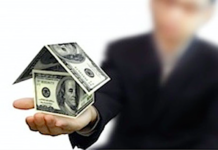There is much written on the topic of credit cards in the personal finance stratosphere. Many are vehemently opposed to credit cards and endorse cutting them up in support of a cash only lifestyle. Others boast of “collecting” credit cards to rack up thousands of “points” which can then be traded in for all sorts of goodies. These two viewpoints obviously sit at opposing ends of a spectrum that finds most consumers somewhere in the middle. The most important aspect in evaluating your individual relationship with plastic is the old adage of “know thyself.” Taking an honest look at your credit card spending habits will help keep you on the most financially sound track. Credit cards can be a great asset and can be made to work to your advantage…but only if you can handle them.
If you have a history of consistently carrying a credit card balance you’re not alone. According to the US census bureau statistics, Americans are projected to be carrying a combined 870 BILLION dollars in credit card debt in 2012, which is up from 680 billion in 2000. If you are contributing to this statistic then you need to reevaluate your relationship with your credit cards, because it’s not a good one. With plastic comes a higher interest rate, and carrying a credit card balance of anything over an amount that can easily be paid off may be catastrophic to your overall financial fitness. If you fall into this category, you need to throw every extra dollar you can find into paying off your debt, and then pull out a scissors and sever your relationship with plastic for good. A cash only approach will force you to create a budget, live within that budget (thereby separating wants vs. needs), and spend only the money you have right now (not the money you hope to have some day).
Even if you consider yourself a “responsible” credit card user who pays off the balance every month, there is still the psychological aspect of credit card usage and overspending that must be considered. Study after study has demonstrated that shoppers spend more with plastic than with actual paper money. The credit card creates a physical and mental buffer between you and your money therefore making it easier to part with. When you pay cash you are directly handing over the fruits of your labor to the vender, and this tangible transaction makes you think twice about how much you really need that item. If you haven’t considered this psychology before, it may be worth doing a month long cash only experiment to see if using credit cards is causing you to overspend. If so then you need to realize that you are not as responsible as you may think, and either ditch the credit cards altogether or retrain yourself to use them only as you would cash.
If you are a credit card master, meaning you pay off the balance each month and purchase only what you would with cash, then credit cards can be made to work for you. By using a credit card with a rewards or cash back program that best suits your needs, you can turn your everyday purchases into real rewards. Gas for the car, food for your belly, and even the cable bill can all be transformed into a free flight to Hawaii or spending money for the trip. The possibilities are almost endless, and the trick is finding a card that best matches your personal needs and then remaining responsible in its use. Coming soon we will take a look at some tips for how to choose a credit card that’s right for you, while maximizing your rewards earning potential.
—————————————————————-
Any opinions expressed herein are solely those of the author, and do not in any way represent the views or opinions of her employer or any other person or entity.
Be sure to “Like” See It Market on Facebook to keep up with current news and updates on the site.








